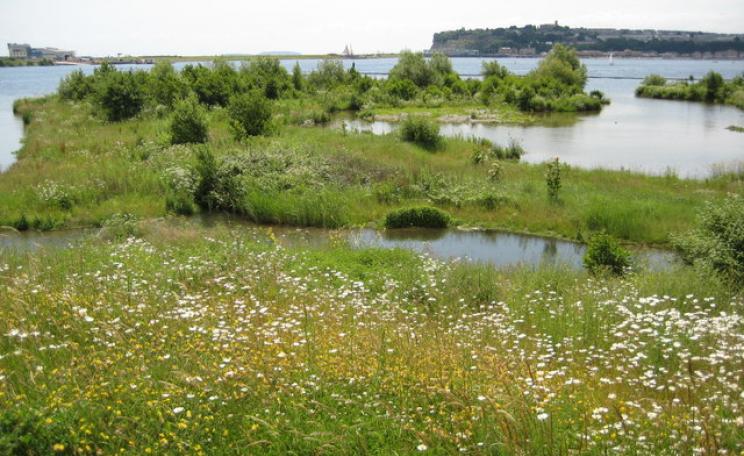Keeping forests standing is one of the most important things we can do to address both the climate and ecological crisis.
Indigenous peoples’ positive impact on the environment is highlighted in a new documentary premiering this week.
The documentary, launched on YouTube on 18 November, showcases the journey of Simón Mejía, founder of Grammy award nominated Colombian band Bomba Estéreo, through the Colombian Pacific region, to the west of the South American nation.
The filmmakers travelled through from mangroves and lowland forest to highland forests and mountains, and lived with indigenous and Afro-descendant communities over several days to experience their culture first hand.
Biodiversity
“Sonic Forest”, directed by award-winning directors Josh Thome and Simón Hernández, captures Mejía’s experience through videography and combined this with an original soundtrack featuring sounds of the ecosystems visited and music from local communities recorded along the way.
Thome said: “We’re living in the midst of a climate and ecological crisis. Keeping forests standing is one of the most important things we can do to address both. Creating alternative economic models with local forest communities is crucial to making it happen.”
The communities featured in the documentary have been the guardians of their forests for centuries. But recently, they have come under threat from deforestation and degradation caused by activities from mining to palm oil.
The documentary showcases their work to conserve the region’s biodiversity, and protect against climate change funded by the purchase of certified credits through the Stand for Trees online platform.
Scientific
The film and music crew visited two of eight projects set up with Stand for Trees. The first, “Macaw Habitat Conservation” located in Mutatá, protects 42,000 hectares of tropical forest and is home to 831 bird species, 195 amphibians, 167 mammals, 210 reptiles and 5,124 plants.
The project trains community leaders in conservation, and addresses drivers of deforestation by providing local indigenous communities tools to improve forest monitoring, land-use planning, and to develop new sustainable livelihoods including shade-grown cocoa.
The second project, known as “Afro-Colombian Mangroves and Forests,” is situated in Bajo Calima and La Plata, Bahía Málaga, a coastal region.
The project protects 104,000 hectares of native forest, supports the sustainable economic development of local communities through training and technical assistance in agriculture, fisheries, and ecotourism, and has created new jobs in forest patrolling and scientific research.
Keeping forests standing is one of the most important things we can do to address both the climate and ecological crisis.
Inspiring
Stand For Trees runs an online platform where individuals can buy certificates representing the tonnes of carbon they are saving by supporting its projects and helping to keep tropical forests standing.
The projects use a pay-for-performance and carbon accounting model developed by the UN to specifically address tropical deforestation called Reducing Emissions from Deforestation and Forest Degradation (REDD+), with the ‘+’ representing all the other things forests provide, such as biodiversity, livelihoods, and wildlife habitat.
This model places a monetary value on the carbon stored in standing forests, creating an income stream for local communities and removing incentives to convert forests to other uses. The projects are all certified to both Verra’s Verified Carbon Standard (VCS) and Climate, Community, and Biodiversity (CCB) Standard, both of which are industry benchmarks.
Sonic Forest is the first in a series of four Stand For Trees productions inspiring people to take action themselves to protect forests around the world. The documentary is available from 18 November, click here to watch.
This Author
Catherine Early is a freelance environmental journalist and chief reporter for the Ecologist. She tweets at @Cat_Early76.







